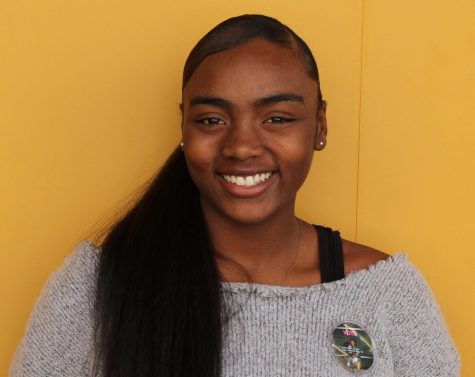School staff lacks diversity
February 28, 2018
In the state of Nebraska, the education system includes 23,900 teachers, 96.8 % of which are white according to the National Center for Education Statistics.
John Jackson, an African American English teacher at Omaha North has noticed a lack of diversity within the staff at North High.
“I have noticed this particularly in uncertified staff such as food service, security, and janitorial. There is a lack of diversity because all of them look like me.”
“I’ve also noticed another of diversity in higher positions but it’s the opposite of uncertified positions.” Jackson said.
Jackson believes to serve every child; the school must provide a diverse staff population.
“I think it’s important to know the importance of students seeing themselves or people who look like them in successful careers or successful situations,” Jackson said.
Jackson believes that for minority students to continue the history of prevailing in unfair situations, there might need to be fewer individuals who don’t look like the students in the classroom to provide the steps necessary for success.
Along with Jackson, several other teacher and students agree that there’s a lack of diversity at Omaha North such as student, DaNya Horne, junior at North.
“We have a lot of Caucasian teachers and African American students so it’s a disconnect between them,” said Horne.
Horne believes that the lack of minority teachers is due to the decline in passion to teach. She believes teaching is meant for those with a passion for it and the ability to afford to be payed minimal.
Horne says teachers are thought of as broke which discourages minorities from the teaching field due to low wages and the expensive cost of surviving. Although, Horne does know Black teachers, teaching is not their only source of income.
“My hairdresser is a teacher, but she also does hair on the side,” said Horne.
Horne and Jackson both reason that the lack of diversity is an issue within in the Omaha North community and could be drastically improved.
Although Omaha North lacks diversity in staff, they aren’t the only school and Nebraska isn’t the only state.
Louisville Central High Magnet Career Academy in Louisville Kentucky struggles with diversity as well, despite being a Historically Black High School. (HBHS)
Louisville’s student population is 81 percent black and 8 percent white but Trinity Presley, an African American student at Louisville says, “Actually, we don’t have that many Black teachers. That’s surprising coming from an all-black high school,”
As Jackson believes the diversity in staff is important for student’s education, Presley believes the same.
“I feel that when you are around your own culture and you see people your age on a daily making it, it’s the best feeling,” says Presley.
Despite being a historically Black high school and the stereotypes that come along with-it, Trinity says it’s non-stop structure. Presley also says Louisville Central is very inspirational and uplifting.
“We all inspire each other to do great in life, like I said we are all a big family. We all support and keep it real with each other,” says Presley.
Another individual with similar ideas as Jackson and Trinity is Christopher Wiley. Wiley is the only African American guidance counselor at North as well as the only African American male guidance counselor in the state of Nebraska.
Wiley says he’s recently noticed a decrease in the diversity at North. His claims are like those of Horne’s about there being a lack of passion for teaching.
“Over the last year it has dwindled quite a bit. The reason why it has dwindled is the difficult requirements for teaching and the lack of support,” says Wiley.
Wiley says the lack of diversity effects everything within the school environment
“It affects the teaching styles. It affects the learning styles. It affects the engagement issues and eventually grades,” says Wiley.
With Wiley being the only Black male counselor in the state for 10 years, he’s had firsthand experience of the lack of diversity. Wiley says he like to see more Black professionals because “it provides a totally different perspective.”
He also believes the lack of diversity affects students learning and behavior “both directly and indirectly.”
“Directly because most students remain concrete learners. Indirectly because it’s important to identify with an adult in the building,” says Wiley.
Wiley has determined that to gain more diversity in the building everyone must step up.
“What has started is an increase in the number of students interested in teaching as a career, mentoring, and general support,” says Wiley.


